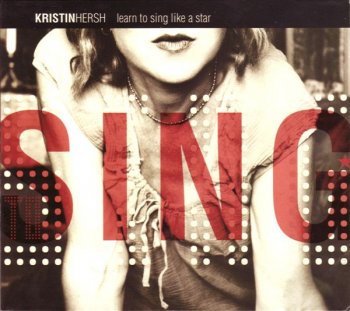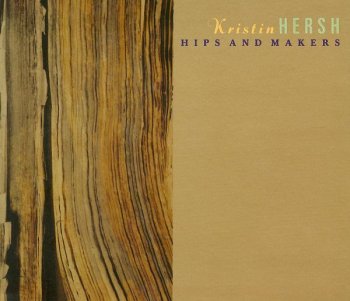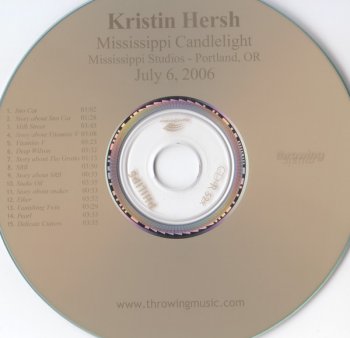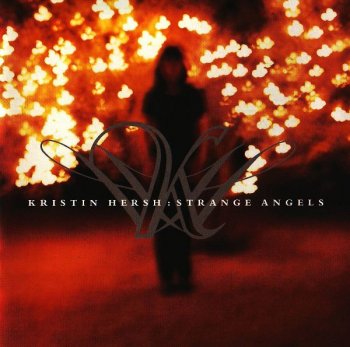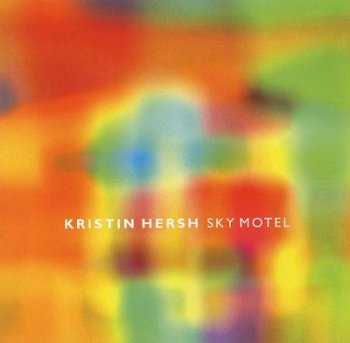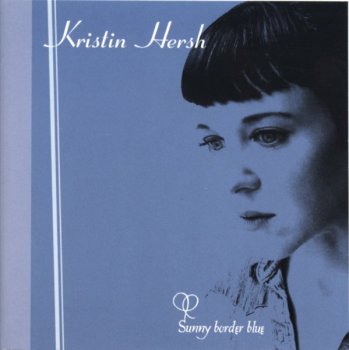Till Brönner (Till Bronner) - Italia 2025
Исполнитель: Till Brönner (Till Bronner) Альбом: Italia Жанр: Jazz Год: 2025 Страна: Germany (Viersen) Лейбл: earMUSIC Формат: FLAC (tracks) Official DR value: DR8 Разрядность: 24bit / 96kHz Stereo Размер: 1,26 GB Инфо: wiki Залито на: XFile (3% восстановление) «Exclusive for Lossless-Galaxy» Italian pop culture as a European state of mind The repertoire of ITALIA draws largely from the 1970s and early 1980s – a golden era of musical exchange across Europe. Italian songs played on French

Till Brönner (Till Bronner) - Italia 2025
Исполнитель: Till Brönner (Till Bronner) Альбом: Italia Жанр: Jazz Год: 2025 Страна: Germany (Viersen) Лейбл: earMUSIC Формат: FLAC (tracks) Official DR value: DR8 Разрядность: 24bit / 96kHz Stereo Размер: 1,26 GB Инфо: wiki Залито на: XFile (3% восстановление) «Exclusive for Lossless-Galaxy» Italian pop culture as a European state of mind The repertoire of ITALIA draws largely from the 1970s and early 1980s – a golden era of musical exchange across Europe. Italian songs played on French
07 09, 2025
FM - Brotherhood 2025
Исполнитель: FM Альбом: Brotherhood Жанр: Melodic Hard Rock, AOR Год: 2025 Страна: UK (London) Лейбл: Frontiers Records s.r.l. Формат: FLAC (tracks) Official DR value: DR7 Разрядность: 24bit / 48kHz Stereo Размер: 696 MB Инфо: wiki Залито на: XFile (3% восстановление) «Exclusive for Lossless-Galaxy»

FM - Brotherhood 2025
Исполнитель: FM Альбом: Brotherhood Жанр: Melodic Hard Rock, AOR Год: 2025 Страна: UK (London) Лейбл: Frontiers Records s.r.l. Формат: FLAC (tracks) Official DR value: DR7 Разрядность: 24bit / 48kHz Stereo Размер: 696 MB Инфо: wiki Залито на: XFile (3% восстановление) «Exclusive for Lossless-Galaxy»
05 09, 2025
Green Carnation - A Dark Poem, Pt. I: The Shores of Melancholia 2025
Исполнитель: Green Carnation Альбом: A Dark Poem, Pt. I: The Shores of Melancholia Жанр: Progressive Rock, Progressive Metal Год: 2025 Страна: Norway (Hamar, Innlandet / Grimstad, Agder) Лейбл: Season of Mist Формат: FLAC (tracks) Official DR value: DR8 Разрядность: 24bit / 44.1kHz Stereo Размер: 510 MB Инфо: bandcamp Залито на: XFile (3% восстановление) «Exclusive for Lossless-Galaxy» No matter what stylistic path they take, GREEN CARNATION have never shied away from grand, gloomy statements.
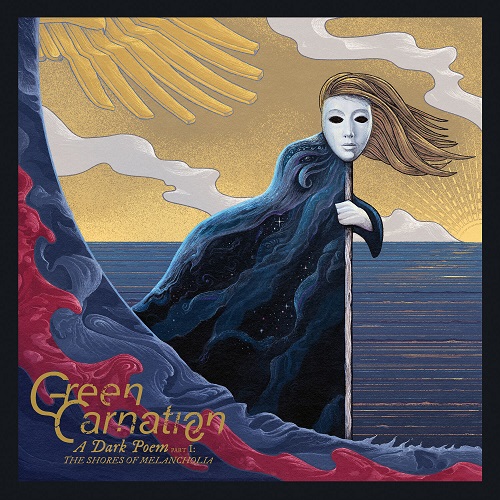
Green Carnation - A Dark Poem, Pt. I: The Shores of Melancholia 2025
Исполнитель: Green Carnation Альбом: A Dark Poem, Pt. I: The Shores of Melancholia Жанр: Progressive Rock, Progressive Metal Год: 2025 Страна: Norway (Hamar, Innlandet / Grimstad, Agder) Лейбл: Season of Mist Формат: FLAC (tracks) Official DR value: DR8 Разрядность: 24bit / 44.1kHz Stereo Размер: 510 MB Инфо: bandcamp Залито на: XFile (3% восстановление) «Exclusive for Lossless-Galaxy» No matter what stylistic path they take, GREEN CARNATION have never shied away from grand, gloomy statements.
04 09, 2025
Жанры
Lossless Galaxy Release
Русская музыка
--Поп
--Рок
--Панк
--Альтернатива
--Металл
--Рэп, Хип-Хоп, R'n'B
--Джаз и Блюз
--Фолк
--Шансон, Авторская песня
--СССР
Зарубежная музыка
--Pop
--Rock
--Hard Rock
--Progressive & Art-Rock
--Pop-Rock & Soft Rock
--Instrumental Rock
--Heavy, Traditional, Industrial Metal
--Power, Gothic, Sympho Metal
--Thrash, Speed, Groove, Modern Metal
--Death, Melodic Death, Doom, Dark Metal
--Black, Pagan, Folk, Viking Metal
--Alternative
--Punk
--Disco, Eurodance
--Rap, Hip Hop, R'n'B
--Reggae, Ska, Dub
--Jazz, Blues, Soul
--Folk, Country, Ethnic
--Electronic, Ambient, New Wave
--House, Techno, Trance
Другие жанры
--New Age, Relax, Meditative & Flamenco
--Chillout, Lounge, Downtempo, Trip-Hop
--Drum & Bass, Jungle, Breakbeat, IDM
--Classical / Классическая музыка
--Soundtrack
--Музыкальные сказки
Vinyl Rip
HI-Res / DVD-Audio / DTS
--SACD
--DSD
--DVD-Audio
Сборники Lossless-Galaxy
Альбомы 2022
Альбомы 2023
Альбомы 2024
Теги
1st Press 2022 2023 2024 2025 70... AOR Black Metal Blues Blues Rock Bootleg Series Classic Rock Death Metal Discography Exclusive for Lossless-Galaxy Folk Rock Fusion Hard Rock Heavy Metal Hi-Res Japanese Edition Jazz Jazz Rock lossless Melodic Death Metal Melodic Rock Modern Electric Blues Pop Pop Rock Power Metal Prog Rock Progressive Metal Progressive Rock Psych Rock Psychedelic Rock Rock SACD Symphonic Metal Thrash Metal Дискографии от KoGGaN
Архивы
Опрос
В каком формате хотели бы видеть релизы на сайте ?
 Автор: WalkingOnAir, 7 июля 2009, Комментариев: 0, Просмотров: 1 390
Автор: WalkingOnAir, 7 июля 2009, Комментариев: 0, Просмотров: 1 390Kristin Hersh - Learn To Sing Like A Star
Исполнитель: Kristin Hersh
Альбом: Learn To Sing Like A Star
Год выпуска: 2007
Лейбл: 4AD
Каталоговый №: CAD 2702 CD
Жанр: Indie Rock
Формат: FLAC [tracks|log|cue]
Размер: 267 MB
Залито на: Depositfiles, Hotfile
Альбом: Learn To Sing Like A Star
Год выпуска: 2007
Лейбл: 4AD
Каталоговый №: CAD 2702 CD
Жанр: Indie Rock
Формат: FLAC [tracks|log|cue]
Размер: 267 MB
Залито на: Depositfiles, Hotfile
Треклист:
01.In Shock 04:13
02.Nerve Endings 03:35
03.Day Glo 03:57
04.Christian Hearse 00:29
05.Ice 03:16
06.Under the Gun 03:10
07.Piano 1 01:44
08.Sugarbaby 03:11
09.Peggy Lee 03:15
10.Piano 2 00:48
11.Vertigo 04:00
12.Winter 02:33
13.Wild Vanilla 02:59
14.The Thin Man 04:18
01.In Shock 04:13
02.Nerve Endings 03:35
03.Day Glo 03:57
04.Christian Hearse 00:29
05.Ice 03:16
06.Under the Gun 03:10
07.Piano 1 01:44
08.Sugarbaby 03:11
09.Peggy Lee 03:15
10.Piano 2 00:48
11.Vertigo 04:00
12.Winter 02:33
13.Wild Vanilla 02:59
14.The Thin Man 04:18
Learn to Sing Like a Star is, without doubt, a Kristin Hersh record that's not entirely divorced from a Throwing Muses record (she has announced that the Muses aren't a dead concern), while also touching on 2001's Sunny Border Blue and her last solo offering, The Grotto, released in 2003. Her first solo offering in nearly four years, Learn to Sing Like a Star is nigh on worthy of rejoicing over. Hersh produced the record herself, and plays everything on it but drums -- played by bandmate David Narcizo -- with support from Martin and Kimberlee McCarrick on cello and violin, respectively. She has a bona fide single in the opening cut, "In Shock." A fast waltz tempo is ushered in by drums, electric guitar, and piano and the hook opens itself because in some sense, the rhythm is the hook. The dynamic is taut, and Hersh goes right into what she does best: lays out a naked lyric that sears immediately, simply peeling the flesh back: "Pinned by a dream state/You are fearless/And your empty arms/Waiting for no one/You wanted to be wanted...." The strings enter and underscore the shuffling kick drum and snare, and Hersh's voice is already reaching for it, that place in her body where the well overflows with emotion, completely free of bullsh*t observation. Of course, it reaches the listener that way, too.
The three-and-a-half-minute "Day Glo," ushered in by both electric and downtuned acoustic guitar, underscores a single-note lyric line. Narcizo comes in on the refrain: "Getting up is what hurts...." By the time the second chorus comes around, strings, her backing vocals, and a full-on kit drum and bassline break the emotion in the tune wide open. She returns to the subtle dynamic that is raged, caged, and ready to spring at the first opportunity. Her voice becomes a torn seam, a ragged-edge knife as she nearly screams: "Then you melt into the background/Adding injury to your insult..." She loses it near the end with layers of backing vocals soaring behind her unhinged electric guitar. Cacophony and near silence hold hands on this recording. The instrumental blues "Christian Hearse" follows here, out of tune, faltering, but never out of time, though it is out of space, someplace from the Delta where it met the northern climes. There are two more instrumental pieces titled simply "Piano 1" and "Piano 2." They break the album in places to allow you to catch your breath.
There is no lack of pathos on Learn to Sing Like a Star, and the album seems to be about learning to go on after grief, loss, and perhaps emotional abuse. The songs aren't saturated with the word "I," either. There are more "you" and "yours" here, although the first person is certainly present as well. The wily, raw emotion precludes these songs from being merely empathetic; Hersh goes further in both lyric and musical composition than she has before. There is a degree of not only sophistication but restraint in her attention to texture, detail, and dynamic. Her previous solo records, fine as they are, bring out her dark and darkly humorous tomes in a steady buildup. Here, surprise is around every corner, and the potential for it lies behind every word twist or angling guitar line. The stuttering rocker "Peggy Lee" features some knockout electric guitar entwined with the strings. Fuzzed explosive six-string and an expressionistic lyric make this tune addictive. Its middle eight contains a complete shift that makes the tune an obsessive listening experience. "Vertigo" is the most poignant cut here; if personal and emotional disintegration had a theme song, this acoustic ditty would be it: "...This place makes me feel like I'm dead haunting/It comes when you steal a Persephone pit/Swallowed with the oxygen that bruised our bones/Swallowed with the pathetic cry, 'Take me home.'"
"Wild Vanilla" could have been done by Lou Reed early in his solo career, and would have fit well on his self-titled debut, or even on Coney Island Baby. But it's all Hersh: as the guitars swirl, an acoustic keeping rhythm with Narcizo's kit work along with a psychedelic wobbly, distorted, and time-warped lead line, she sings: "You messing with my head makes a terrible noise." "The Thin Man" is one of those tracks, a ballad that cannot be described. Its poetic and compositional acumen are irrevocably linked, two terribly mismatched lovers rolling together in a dance of starvation and obsession. Learn to Sing Like a Star was certainly worth the wait, and if fans will listen closely enough, they'll understand that Hersh's sophistication as both a singing poet and composer has grown almost immeasurably. It defines whatever brilliance is these days -- it's necessary, and it's a carefully crafted yet compulsively delivered gem. As far as pop music goes, it should not be passed up by anyone who has ever felt that whatever happens underneath the skin is driven by the pitted, pitiable, scarred, and shape-shifting heart.
The three-and-a-half-minute "Day Glo," ushered in by both electric and downtuned acoustic guitar, underscores a single-note lyric line. Narcizo comes in on the refrain: "Getting up is what hurts...." By the time the second chorus comes around, strings, her backing vocals, and a full-on kit drum and bassline break the emotion in the tune wide open. She returns to the subtle dynamic that is raged, caged, and ready to spring at the first opportunity. Her voice becomes a torn seam, a ragged-edge knife as she nearly screams: "Then you melt into the background/Adding injury to your insult..." She loses it near the end with layers of backing vocals soaring behind her unhinged electric guitar. Cacophony and near silence hold hands on this recording. The instrumental blues "Christian Hearse" follows here, out of tune, faltering, but never out of time, though it is out of space, someplace from the Delta where it met the northern climes. There are two more instrumental pieces titled simply "Piano 1" and "Piano 2." They break the album in places to allow you to catch your breath.
There is no lack of pathos on Learn to Sing Like a Star, and the album seems to be about learning to go on after grief, loss, and perhaps emotional abuse. The songs aren't saturated with the word "I," either. There are more "you" and "yours" here, although the first person is certainly present as well. The wily, raw emotion precludes these songs from being merely empathetic; Hersh goes further in both lyric and musical composition than she has before. There is a degree of not only sophistication but restraint in her attention to texture, detail, and dynamic. Her previous solo records, fine as they are, bring out her dark and darkly humorous tomes in a steady buildup. Here, surprise is around every corner, and the potential for it lies behind every word twist or angling guitar line. The stuttering rocker "Peggy Lee" features some knockout electric guitar entwined with the strings. Fuzzed explosive six-string and an expressionistic lyric make this tune addictive. Its middle eight contains a complete shift that makes the tune an obsessive listening experience. "Vertigo" is the most poignant cut here; if personal and emotional disintegration had a theme song, this acoustic ditty would be it: "...This place makes me feel like I'm dead haunting/It comes when you steal a Persephone pit/Swallowed with the oxygen that bruised our bones/Swallowed with the pathetic cry, 'Take me home.'"
"Wild Vanilla" could have been done by Lou Reed early in his solo career, and would have fit well on his self-titled debut, or even on Coney Island Baby. But it's all Hersh: as the guitars swirl, an acoustic keeping rhythm with Narcizo's kit work along with a psychedelic wobbly, distorted, and time-warped lead line, she sings: "You messing with my head makes a terrible noise." "The Thin Man" is one of those tracks, a ballad that cannot be described. Its poetic and compositional acumen are irrevocably linked, two terribly mismatched lovers rolling together in a dance of starvation and obsession. Learn to Sing Like a Star was certainly worth the wait, and if fans will listen closely enough, they'll understand that Hersh's sophistication as both a singing poet and composer has grown almost immeasurably. It defines whatever brilliance is these days -- it's necessary, and it's a carefully crafted yet compulsively delivered gem. As far as pop music goes, it should not be passed up by anyone who has ever felt that whatever happens underneath the skin is driven by the pitted, pitiable, scarred, and shape-shifting heart.
~ Thom Jurek, AMG
Внимание! У Вас нет прав для просмотра скрытого текста.
Похожие новости:
Комментарии отсутствуют
Добавить комментарий!
Информация
Посетители, находящиеся в группе Гости, не могут оставлять комментарии к данной публикации.
